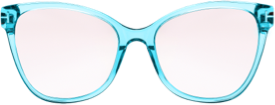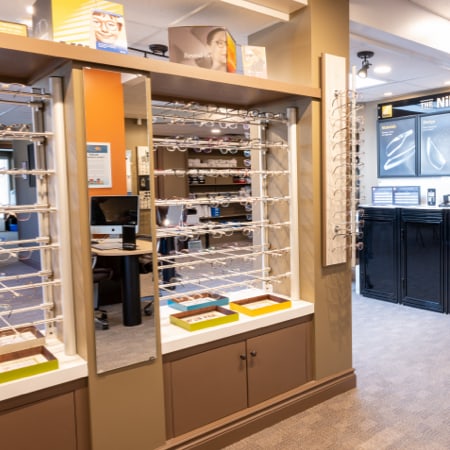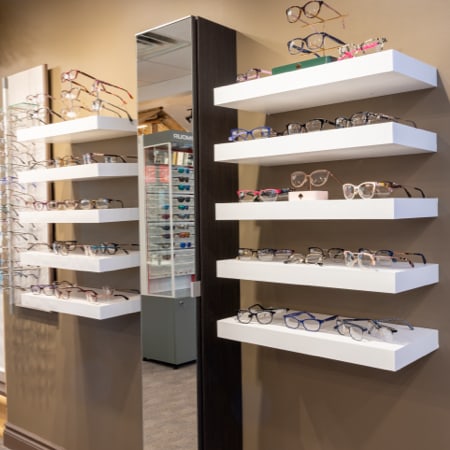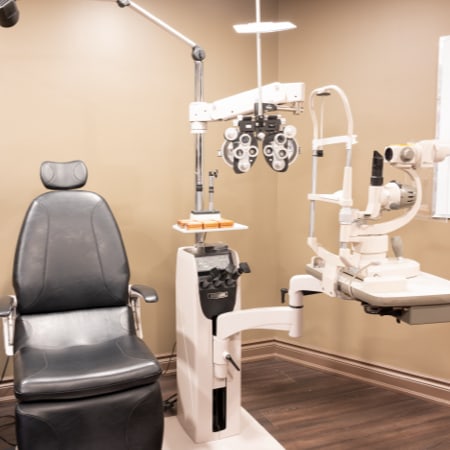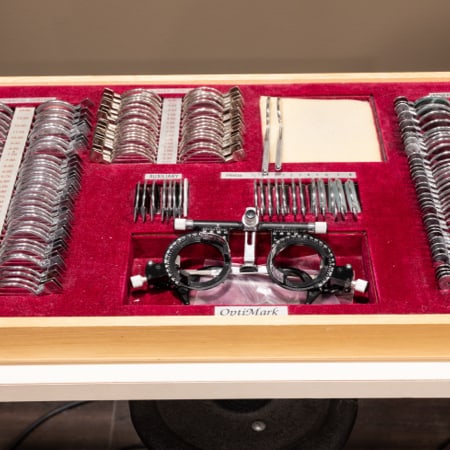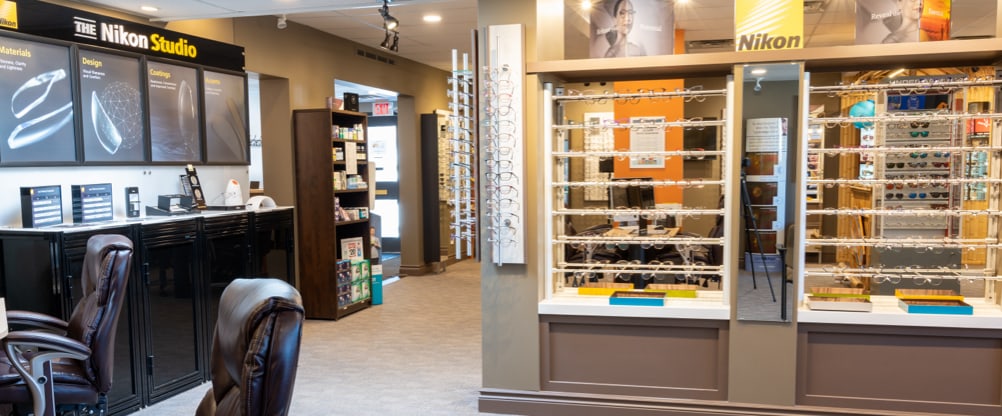Sometimes, our fatigue can make sleep so irresistible that we have little to no desire to get ready for bed. Skipping your skincare routine and not changing into your pajamas is one thing, but sleeping in your contact lenses is never a good idea.
Sleeping with your contact lenses creates a low-oxygen environment for your eyes, making them more vulnerable to irritation, damage, and infections.
As a preventative measure, always remove your contact lenses (especially after a long day) and limit your lens wear to 12 hours a day or less. Even your eyes need a moment to relax and breathe!
With proper care, contact lenses are an effective tool for vision correction and are safe for daily wear.
Sleeping in Your Contact Lenses: Know the Risks
Although most contact lenses are highly breathable—to encourage continuous oxygen flow and hydration during wear—your cornea still doesn’t receive as much oxygen as the naked eye.
When asleep, your eyelids are closed, further reducing the cornea’s oxygen supply. Sleeping in your contacts adds another barrier, creating a low-oxygen environment (or hypoxia) for your eyes.
At the end of a busy and chaotic day—no matter how tired you are—your eye health is worth taking a few extra minutes to carefully remove and clean your contact lenses.
Risks to Your Eye Health
As a result of a hypoxic environment, your eyes are more vulnerable to irritation, which can lead to eye infections, dry eye, corneal ulcers, and bacteria buildup.
Eye Infections
Sleeping in lenses increases the chances of bacterial infections, such as bacterial keratitis. Some infections can develop in 24 hours, causing redness, severe discomfort, and impaired vision.
Dry Eye
Your eyes rely on a continuous layer of moisture, known as the tear film, to keep the surface nourished, clean, and clear for healthy vision. Just like your eyes, soft contact lenses also need to stay moist to function properly.
When moisture in the lens runs out, it retains it directly from your eyes, leading to dry eyes overnight. The lack of moisture can make it more challenging to remove the lens when you wake up.
Proteins & Bacteria Build-Up
Over time, wearing lenses during sleep encourages protein deposits and bacterial accumulation to cling to the lenses. Emphasizing the importance of daily lens cleaning and following its replacement schedule.
Corneal Ulcers
Corneal ulcers are open sores on the cornea (front surface of the eye) that can lead to scarring, vision loss, or blindness if untreated.
Can You Take a Quick Nap in Contact Lenses?
Fatigue can catch you quickly. You may even have a quick nap without realizing it. Although a quick nap with your contact lenses isn’t as risky as sleeping in them overnight, it’s a poor hygiene habit that eye doctors don’t encourage.
If you’re ever hit with a sudden wave of fatigue, take care of your eyes by carefully removing your contact lenses as a preventative measure. Also, keep in mind that most contact lenses are designed for 8–16 hours of daily wear, and younger wearers, like teens, shouldn’t exceed 12 hours a day.
However, we aren’t immune to accidentally napping in contact lenses. Here are a few tips to help mitigate the risks and care for your eyes afterward.
1. Hydrate with Artificial Tears
After a nap, your eyes may feel dry. Hydrate your eyes with preservative-free artificial tears to reintroduce moisture and link frequently to encourage natural tear production.
Adding moisture helps prevent the lens from sticking to your eyes, possibly causing abrasions.
2. Remove Your Lenses
Carefully remove the lenses and avoid tugging if they feel stuck. If they refuse to budge, visit your eye doctor immediately so they can safely remove the lens.
3. Give Your Eyes a Break
After removing the lenses, give your eyes a break. Replenish your eyes with preservative-free artificial tears and wear your glasses instead. Avoid putting in new lenses immediately.
4. Discard Your Lenses
If you were wearing reusable contact lenses (i.e. monthlies or bi-weekly), discard the previous lenses and open a fresh new pair to reduce the risk of debris accumulation.
5. Watch for Symptoms
Watch for symptoms like redness, irritation, grittiness, or blurry vision. Connect with your optometrist immediately if you experience any discomfort or vision changes.

Safe Contact Lens Wear & Care
Contact lenses can offer a reliable option for vision correction. However, because the lenses sit directly on the eye’s surface, they require more care and maintenance than eyeglasses.
Proper lens care promotes safe and comfortable wear and encourages healthy eye habits. Here are some helpful tips to implement in your daily routine.
Choose the Right Lens
Not all contact lenses are the same. They each have their benefits and drawbacks. The key is finding a contact lens compatible with your eye health, visual, and lifestyle needs.
Whether you prefer the convenience of daily disposable contacts or the durability of monthly lenses, a contact lens fitting with your optometrist can determine a suitable contact lens for you.
Maintain Proper Lens Hygiene
Proper lens hygiene is crucial no matter what kind of lens you wear. Healthy hygiene habits help prevent irritation, encouraging a safe and comfortable wear experience. Follow these tips to promote hygienic lens wear:
- Always wash your hands with soap & water before handling your lenses
- Only clean your lenses with fresh, sterile contact lens solution
- Regularly clean & dry your contact lens case
- Replace your lens case every 90 days to prevent debris accumulation
- Always follow your lens replacement schedule to avoid overwearing them
Take Breaks
Your eyes need rest. If your schedule includes long hours of screen time or high-demand activities, don’t hesitate to give your eyes a break by removing your contacts and wearing your eyeglasses instead.
Schedule Regular Eye Exams
Annual contact lens exams play a vital role in your eye health. Your contact lens exam helps your eye doctor determine if your current lenses are still the right option for you.
During this comprehensive check-up, we can update your prescription, assess the health of your eyes, evaluate the fit of your contact lenses, and check for early signs of infections or irritations for timely interventions.
Keep Your Vision Healthy All Day
At Orillia Optometry, we want to highlight how crucial it is to correctly care for and wear your contact lenses. Sleeping in your lenses is never worth the risk.
By following safe wear guidelines, you’re actively helping to keep your eyes healthy and happy, allowing you to enjoy clear vision with contact lenses for years to come.
Your eyes deserve the world. We’re here to help. Connect with our team to schedule an appointment for your contact lens exam.




